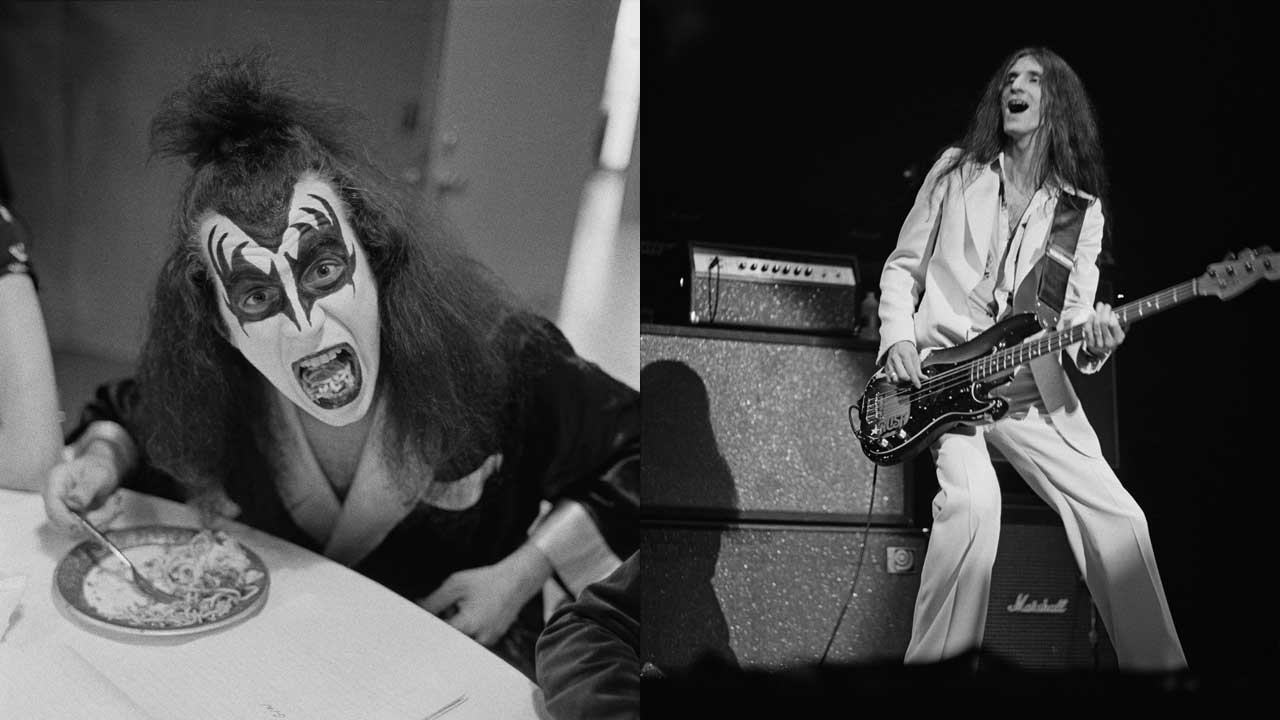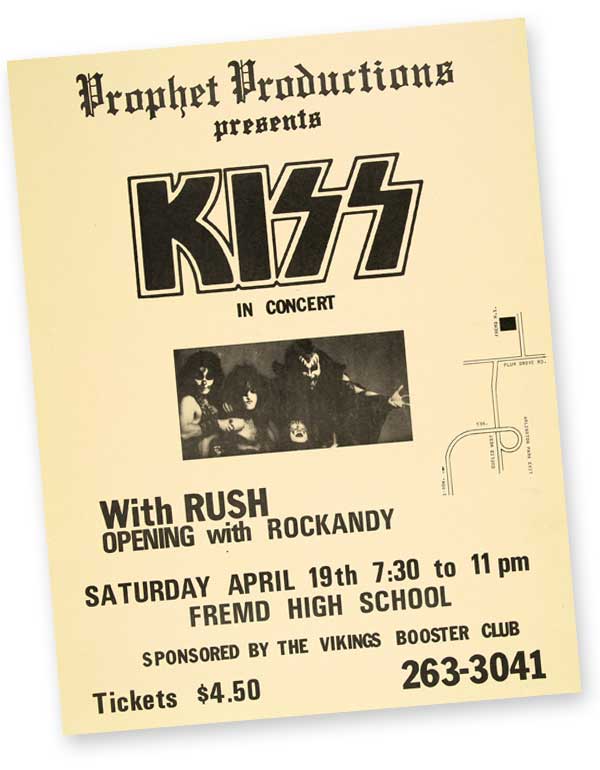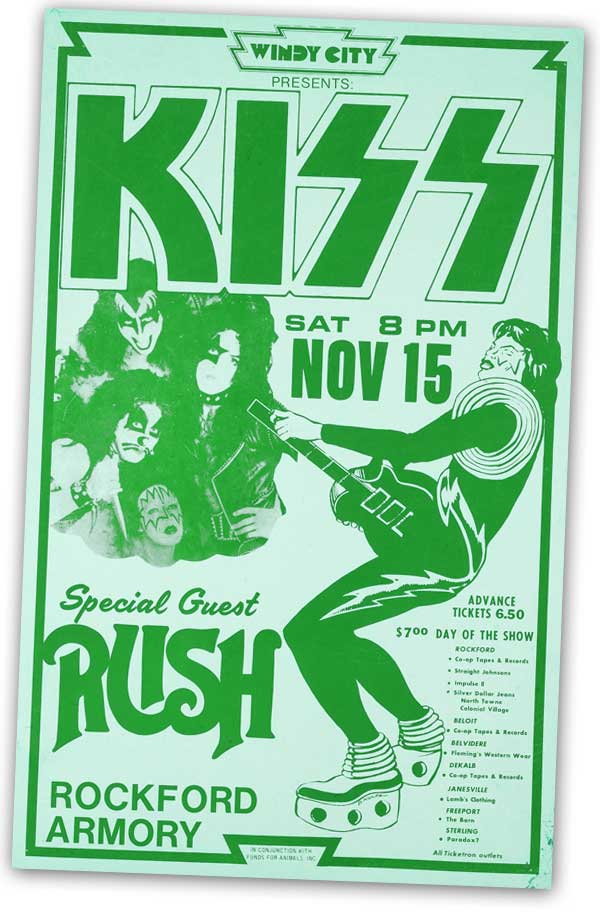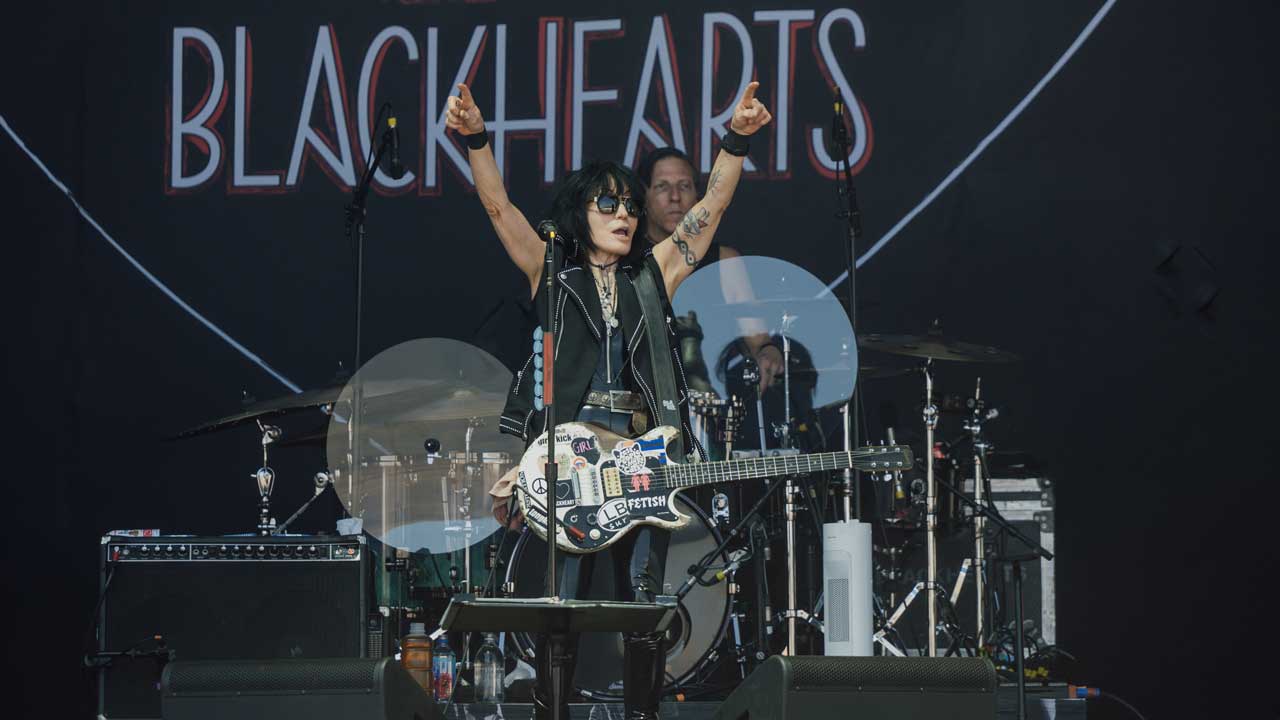'I was trying to get them laid' - what happened when Rush toured with Kiss
Kiss legend Gene Simmons fondly recalls the days when a fledgling Rush would regularly play support to the panstick-sporting rockers

Everybody knows that Kiss bassist Gene Simmons has a long tongue. And most people know that he was partial to using it while spending time the many thousands of women the frontman claimed to have spent time with in his codpiece-wearing, fire-breathing heyday.
But on the rare occasions when he wasn’t indulging in such behaviour, Simmons always put his tongue to another good use – hyping his own band. With the finely-honed instincts of the born hustler, Simmons never missed an opportunity to tell the world that Kiss were louder, wilder, crazier than the rest of his 1970s rocking competition.
So even now, when he agrees to talk about his admiration for a band with a four-letter name that isn’t Kiss, it’s worth sitting up and taking notice. “We took Rush out as our opening act on either our first or second tour, I can’t remember which,” he explains. [The first dates the bands played together were September of 1974, two months before Kiss’s second album, Hotter Than Hell, was released].
“We were in a weird situation where we had already started headlining some 3,000 seaters even though we hadn’t had a hit record, so some of the dates were pretty big. I’d heard Working Man somewhere or other, and to me Rush sounded like the Canadian Zeppelin.”
Simmons breaks off to do a fair-to-middling impression of Geddy Lee’s Robert Plant-influenced scream on Finding My Way. “So they had the kind of leanings that struck a chord with me. Plus they played and sang really well. Our point of view from the very start was that the entire concert experience should be a reflection of the headlining band, so we always took great pride in offering support slots to bands we liked.
"We were about giving the people who came to the shows a real bang for their buck, so we never worried about money and buy-ons and all the rest of it. The attitude was that if the package was good, then the money would take care of itself. Our opening bands were a reflection of us. We never pulled the sound down on them. We always gave them full lights.
"It was a cutthroat business, but we never did those things. We gave first tours to AC/DC, Judas Priest, Iron Maiden, Bon Jovi, Motley Crue, a whole bunch of acts... Rush was one of the first acts that we gave a break to – and time has judged that we made a good decision.”
Sign up below to get the latest from Classic Rock, plus exclusive special offers, direct to your inbox!

Neil Peart had already replaced John Rutsey on the Rush drum stool at this point, but hadn’t yet shifted the three-piece towards a more progressive style. Yet even at that early juncture, the band seemed pretty, well, ‘musicianly’. Didn’t that worry Kiss, who for all their many attributes are not and never have been virtuosos?
“They weren’t slack,” concurs Simmons. “And that was a great thing. Look, if you’re in the gym and the guy who’s next to you can lift more than you can, then you want to compete with him and you want to be better than him, right?
"And anyway, you always have to be delusional when you get up on stage. It’s what makes you a champion. I was never concerned about who we were putting ourselves up against. You could have had cellist Yo-Yo Ma on the bill, who’s a way better musician than I’ll ever be, and I would always have backed myself!
“But you’d be surprised! I remember sitting with Geddy one time back then throwing riffs back and forth. I told him about a bass run that I’d discovered that went from a major to a minor, then to a flat third, a kind of a European scale that then switched to a blues scale. But Geddy didn’t have a clue what I was talking about! He said ‘I don’t know what the notes are called. I just know how to play them.’
"Rush didn’t feel like ‘musos’ at the beginning. They were much more of a ‘meat-and-two-veg’ rock band at that time. But Neil read lots of books, and started to bring in that sci-fi, Isaac Asimov kind of thing. Plus he knew lots of big words like ‘condominium’! That was when things started to change. To be honest I always preferred the meat and potatoes stuff."

Rush toured with Kiss at various points in ’74, ’75 and ’76. Naturally, the two acts grew close. “We were hanging with Rush after the shows, having lots of fun together. I was trying to get them laid...”
With any success?
“I’m pleading the fifth on that one to save their reputations! But they really were sweethearts.”
Were Kiss’s blue collar all-American fans down with Rush? They are Canadians, after all...
“They actually went down very well,” says Gene. “They didn’t really have their own fans turning up to see them in any numbers at that stage, but they weren’t all that different to us, so they appealed. It was all riff-based blues rock with a lot of bombast. They probably already had a few different time signatures by then, but it wasn’t progressive like it was to become.
"It’s true that there wasn’t really what you’d call a Rush ‘live performance’, either, because Geddy was stuck to the mic playing bass at the same time as he was singing. So he couldn’t do any Robert Plant routines or anything like that. And Alex wasn’t exactly pulling any Pete Townshend windmills and splits, you know? The stage show wasn’t their focus. But people still liked them a lot.”
While Gene’s bulging black book attests to the fact that there was plenty of fun to be had back then, touring in the ’70s was also reputed to be notoriously hard work. Were those Kiss/Rush tours physically tough?
“It was gruelling! All that romantic talk of how amazing it was back in the day is all well and good, but it was demanding and you had to have a work ethic. Before MTV, cellphones and iPads there were only three or four TV stations and a few radio stations.
"So the only way to get your music out there was to go to the people. I felt privileged to be doing what I was doing, but if you weren’t careful you could get beguiled and seduced by the lifestyle. There were chicks everywhere and we were getting paid $5,000 a night, which felt like good money back then.
"But I always remembered the hunger I had when we started out and I was living in my ma’s basement. You have to hand it to the guys in Rush too. They were ‘all for one and one for all’. And even with all of the chicks and all the rest of it, they never let it get in the way of what they were doing."
While both bands went their separate ways after those early days together, both Rush and Kiss are confirmed survivors in an industry that notoriously eats its own. It’s surely pointless asking Gene whether he thought Kiss would survive for 40 years. But did he ever envisage Rush still being together in 2012 when he first saw the band perform back then in 1974?
“I thought they’d become a big act like Zeppelin or Sabbath,” he says. “But when Rush went progressive I didn’t know if it would stick, because girls just don’t get prog. And there are no girls at Rush shows to this day! But congratulations and kudos to them for making it and doing it the hard way, by getting out there and working. Rush don’t hide away in their mansions. They’re out there doing it, just like we are.”
Simmons isn’t trying to kid us that the two bands are still best buddies these days, though. “I went to see Rush a few years ago at the Forum in LA and I enjoyed watching them perform,” he explains. “But unfortunately I didn’t get to see the guys after the show for whatever reason. In truth it’s been a long while since we last saw each other.”
We’ve got one last question. You’ve got room for just one Rush song on your desert island iPod. What is it? And why that tune?
“Oh, that has to be Working Man. It will always be Working Man for me. Both musically and spiritually, that’s the essence of what Rush really are as a band. Those guys are true working men.”
This feature was originally published in Classic Rock's Rush - Clockwork Angels fanpack, in June 2012.
Howard Johnson is a music writer based in France. The editor of Rock Candy magazine, he's also written for Kerrang!, Metal Hammer, RAW, Q, MoJo and Japanese rock magazine Burrn!, and is a French football correspondent for World Soccer mag. He has also written a book on AC/DC, Get Your Jumbo Jet Out Of My Airport.
